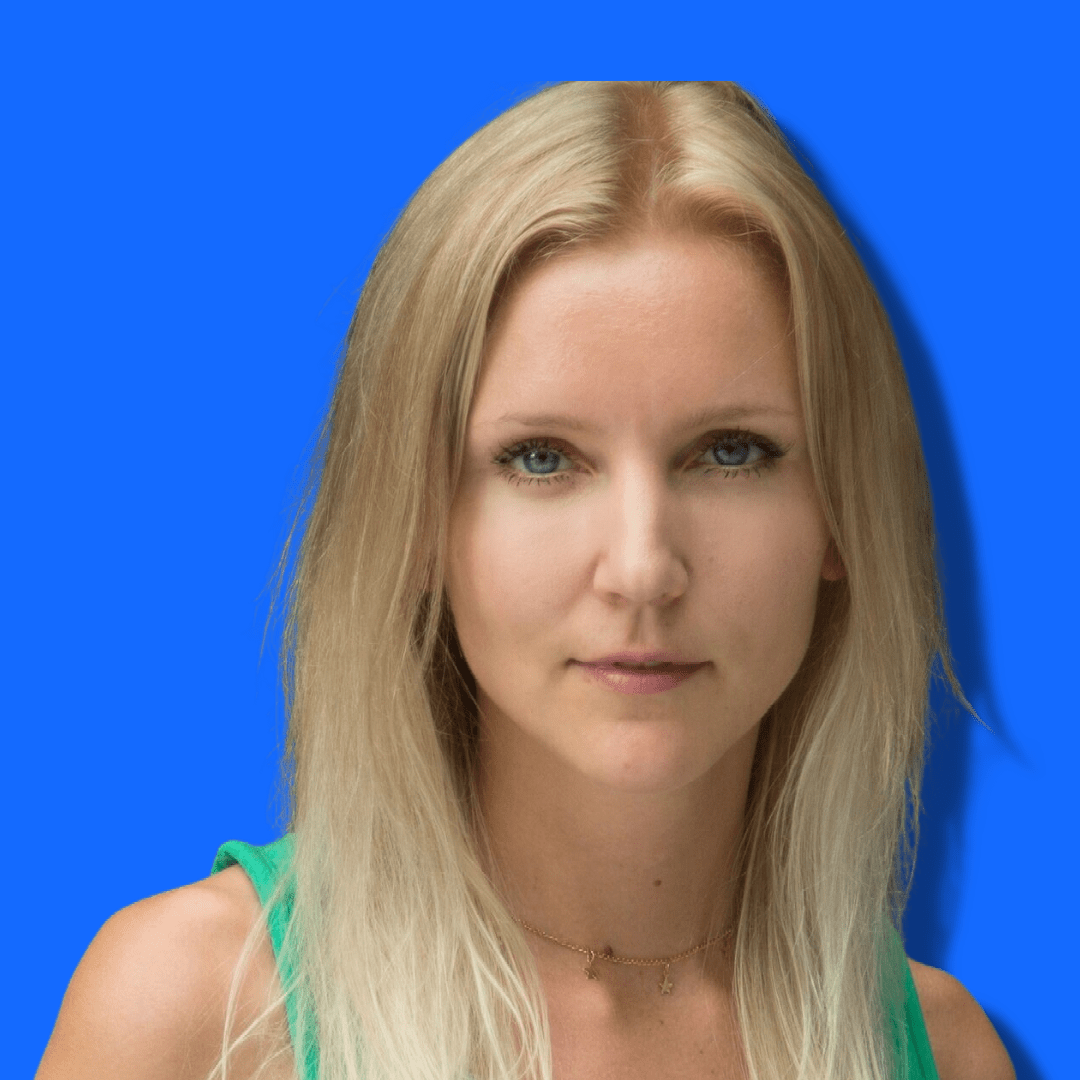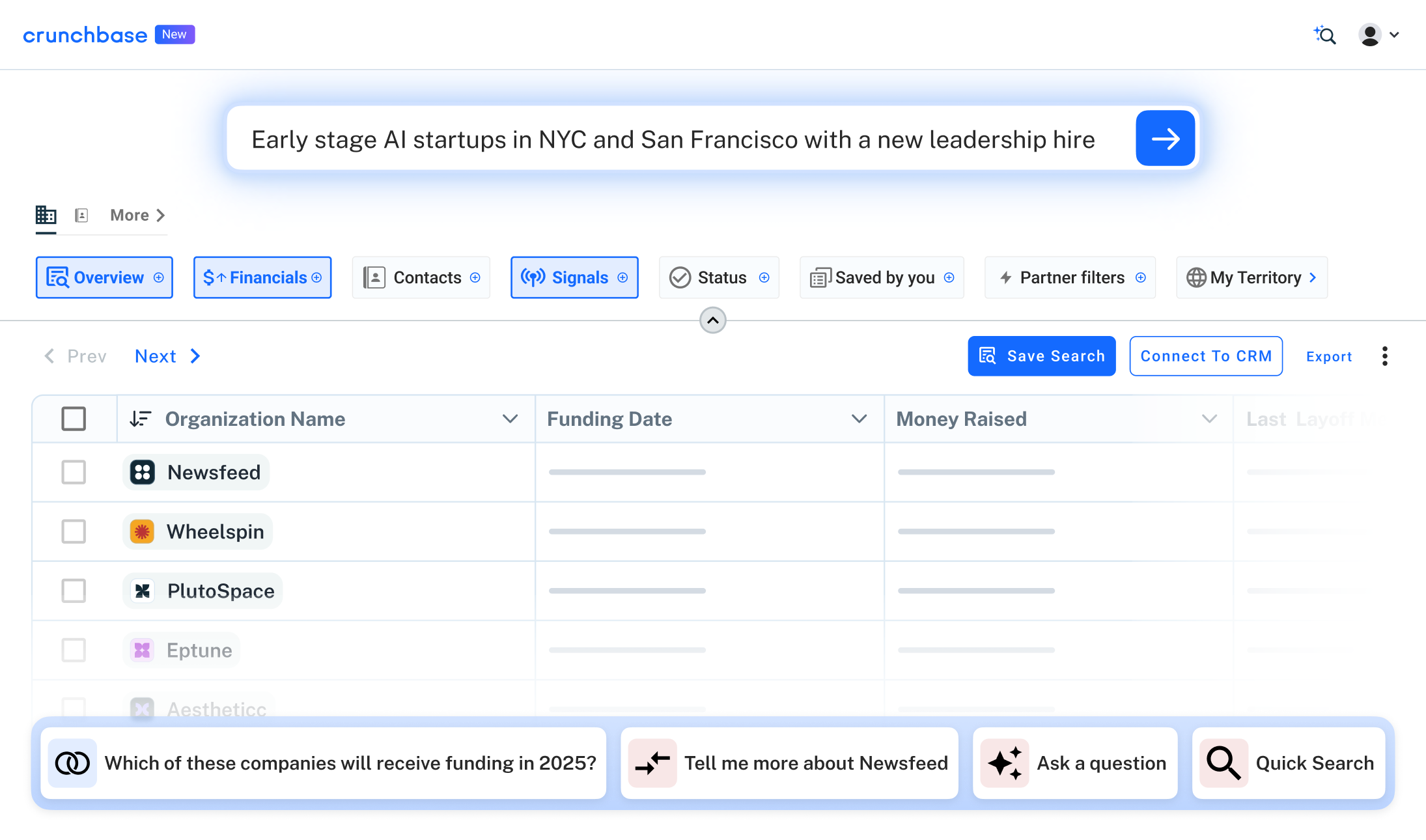The Crunchbase “Female Founder Series” is comprised of stories, Q&As and thought-leadership pieces from glass-ceiling-smashers who overcame the odds and are now leading successful companies, or investing in them.
Born and raised in Finland, Sofia Laurell, co-CEO and co-founder of Tiny Organics, an early childhood nutrition and wellness company, has been passionate about advocating for women and children throughout her life.
Prior to Tiny Organics, Laurell supported the corporate growth at Ascend Foundation, helping elevate women and minorities onto U.S. corporate boards and creating a pipeline of women and minorities to achieve the highest levels of leadership at Fortune 500 corporations. Laurell also serves on the Tufts School of Nutrition Innovation Council. In this Q&A, Laurell discusses her inspiration for starting a childhood nutrition and wellness brand, how Tiny Organics is paving the way to shape the palates of a generation, and her advice for other female founders.
Q: Did you always know you wanted to be an entrepreneur?
I’ve always wanted to be on the side of building something different and impactful in this world. My family was very academic and artistic, and this had such a big impact on who I am today. I knew a traditional career path wasn’t for me and the exposure of my family’s interests influenced me to capitalize on honing in on my creative side and entrepreneurial skills to build a business that impacts generations to come.
I strongly believe in purpose—we have a moral responsibility to create a meaningful impact for the collective good in society and our direct communities. Not everyone has the opportunity to build and capitalize on meaningful impact and it is such an honor to be able to fulfill that.
Q: What inspired you to start your company?
I co-founded Tiny Organics to bring childhood nutrition to the front of the health and wellness conversation for families across the U.S. We are on a mission to shape the palates of a generation to prefer and love vegetables and healthy foods from the earliest days, ensuring children grow up to live their healthiest, happiest lives—and ultimately prevent chronic diseases later in life.
Q. In the first eight months of 2021, only 2.2 percent of venture capital was invested in female-only founded companies. Do you feel welcome and accepted as an underrepresented group in the VC space?
There is a preconceived mold for female-founded companies to operate a certain way because of the scarcity of venture capital, but in fact, female founders and underrepresented groups are often driving higher returns. I had a nontraditional path to co-founding Tiny Organics and we’re seeing more and more female founders take a similar approach.
A few years from now, there will be no traditional resume for female founders; these differences make you a better operator and provide you with a unique perspective. Founders can come from anywhere and everywhere, and investors only backing those with a more traditional background are not only limiting their portfolio but alienating entire communities and demographics that a lot of these nontraditional founders are trying to support.
Q: How did you network, find communities and make the connections you needed to succeed?
One of the things I enjoy the most is meeting new people, hearing their stories and connecting people to each other. I am a super-connector of people and always operate in the habit of making introductions!
I knew no one when I moved to New York from Europe 12 years ago. There were a few close friends whom I met in the early days who were instrumental in building my network. The idea to intentionally make time to build relationships came naturally to me. I would advise anyone looking to build their network to think about how they can help others and pay it forward. Someone once said: “In order to be interesting you have to be interested”—if you are authentic and authentically wanting to help and learn from people, you will slowly start to build a network that can help you grow in your personal life and in your business.
Q: What is your advice for other female founders at the beginning of their entrepreneurial journeys?
Never stop building, because women can succeed despite the gender barrier. It may be more of a challenge, but the demand for our companies, products and services are there, so never stop networking.
Tip: Investors tend to look for founders who are similar to themselves. Build a strong community of successful women around you—from mentors to investors and anything in between.
Q: What is the most valuable lesson you’ve learned as the co-founder of your own company?
There is no traditional resume for a CEO. The more diverse your operational experience, the better you will be able to navigate the ups and downs of running a company.
Q: What is your advice for other entrepreneurs trying to scale their own company?
For other founders in the direct-to-consumer space, look to channels where you can build on the emotional connection with your customers, and with this, you never stop building customer loyalty.
Q: What is a challenge are you most proud of overcoming in your career?
For me, being an immigrant and overcoming the challenges that I experienced in my visa journey is one of my proudest moments. Some of the biggest companies in the U.S. are founded by immigrants, and I want to do my part in sharing my story and the resources and tools that helped me.
Q: Any thoughts or advice for entrepreneurs in the current economic climate?
For DTC entrepreneurs, the way people discover new products and services has changed drastically in the past few years (even in the past 12 months). You have to meet your customers where they are. My recommendation to founders building in this space is to always spend time understanding this.
Q: What do you find most rewarding about your experience as a founder so far?
Personally, the learning curve has been like nothing else I’ve experienced. It gives you the tremendous inner confidence to know you have the courage to try and solve any challenge that comes your way, and it makes you approach life through a learning lens. Being able to nurture the freedom I have to learn, challenge and help others has been so rewarding.
.svg)




.png)
.png)

